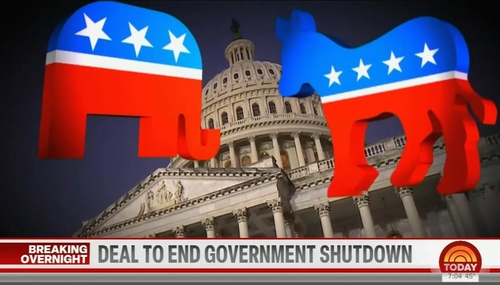
Nearly five years after President Bush introduced the concept of an "axis of evil" comprising Iraq, Iran and North Korea, the administration has reached a crisis point with each nation: North Korea has claimed it conducted its first nuclear test, Iran refuses to halt its uranium-enrichment program, and Iraq appears to be tipping into a civil war 3 1/2 years after the U.S.-led invasion.
Each problem appears to feed on the others, making the stakes higher and requiring Bush and his advisers to make difficult calculations, analysts and U.S. officials said.
The analysts in the Kessler-Baker piece are all Democrats and/or Clinton staffers, although only some of them are identified as such:
-- Robert J. Einhorn, "senior adviser at the Center for Strategic and International Studies," who was a deputy secretary of state under Clinton and his "point man" on WMDs.
-- Michael E. O'Hanlon, "a Brookings Institution scholar," known to TV news junkies as CBS's favorite-foreign policy expert, a Democrat and author of "Clinton's Strong Defense Legacy," a man who thinks that Kim Jong Il plays a "delicate game."
-- Jim Manley, "spokesman for Senate Minority Leader Harry Reid."
-- Former Senator Sam Nunn, Democrat of Georgia, bashing the Iraq war.
-- James B. Steinberg, "President Bill Clinton's deputy national security adviser." He apparently spoke for the Post as he was given the choice spot in the article as the Last Sagacious Words:
[Steinberg] said the North Korea test will raise a larger question that echoes Ronald Reagan's most famous 1980 campaign line -- "With respect to the axis of evil," Steinberg said, "are you better off today than you were four years ago? . . . It's clear that the answer is we're worse off with respect to the nuclear proliferation problem in both North Korea and Iran than four to six years ago, and I would argue we're worse off in our overall security because of the situation in Iraq."




